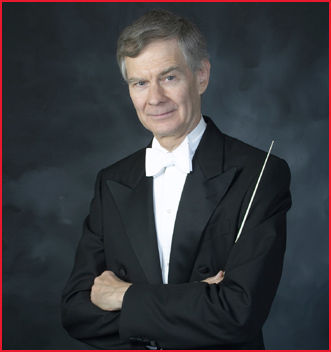Boston Musica Viva leads off season with Stucky premiere
To open the season, Richard Pittman and Boston Musica Viva turned their attention to the music of Steven Stucky.
The relationship between the Pulitzer-Prize winning composer and Boston Musica Viva has lasted several decades. The ensemble first performed Stucky’s works while he was a graduate student at Cornell University, beginning a fruitful relationship that has resulted in three commissioned pieces written especially for Boston Musica Viva.
Saturday night at the Tsai Performance Center, Boston Musica Viva offered the East Coast premiere of another piece tailormade for the ensemble, Stucky’s Cantus.
A co-commission from Boston Music Viva and the Seattle Chamber Music Society, Cantus is scored for a Pierrot ensemble of flute, clarinet, violin, cello, piano, and percussion, and involves an extended melodic line.
And in that Cantus soars. The violin carries the melody from a shimmering and tender upper range to a warm middle register before passing it off to the cello, which manages to sing through evanescent clouds of pitches.
The piece’s melodic richness aside, Stucky’s harmonic writing is colorful and complex, with dense clusters of piano and vibraphone pitches serving as accompaniment. Cantus ends with the strings and winds coalescing in warm, shimmering statements while percussion and piano cover the texture in a thin harmonic veil.
Leading with deliberate gestures, Pittman coaxed smooth and controlled playing from the ensemble to give the work stellar advocacy. Violinist Gabriela Diaz supplied a rich, warm tone for the work’s extended melody while cellist Jan Müller-Szeraws answered with amber-toned phrases. Flutist Ann Bobo and clarinetist William Kirkley added sparkling touches to the shimmering accompaniment, supplied by pianist Geoffrey Burleson and percussionist Robert Schulz.
Rounding out the concert were works by some of Stucky’s friends and contemporaries.
No composer has had more of an influence on Stucky’s style than Witold Lutosławski. It was fitting, then, to hear a work by the Polish master Saturday night.
Lutosławski’s Grave: Metamorphoses for cello and piano (1981) is a tightly constructed work where the music grows organically from small melodic fragments. The piece, moreover, is a delicate dance of squirrelly phrases and jagged statements for the instruments.
Müller-Szeraws and Burleson played with urgency and dramatic vitality to bring the score to life. Müller-Szeraws’ cello sounded with rich, rosy tone that brought a singing quality to Lutosławski’s gnarly writing, and Burleson, playing with clear touch, punctuated the texture with stabbing chords.
Similar energy also characterized Saturday night’s performance of Brett Dean’s Sextet (2010).
Dean’s music made its rounds in Boston and Tanglewood last season as the Boston Symphony Orchestra performed the composer’s Dramatis personae for trumpet and orchestra.
Dean’s Sextet, scored for winds, strings, piano, and percussion, is cast in a similarly astringent style that conveys a troubling subject. The piece bears the subtitle “Old Kings in Exile,” taken from a memoir by Austrian novelist Arno Geiger that deals with the problems of aging and failing health.
Cast in three movements, the piece abounds in dark, melancholy statements. The slow outer movements are a journey through glistening sound effects, including the rumbles of low piano strings, cymbal rolls, the eerie scratch of a rubbed bass drum head, and metallic violin and cello trills.
The second movement unfolds in a flutter of riffs for winds and strings. Dean’s harmonic writing is spacious but dissonant, where chords grind against each other in open intervals. The music dissolves into plaintive flute lines, deftly played by Ann Bobo, that unravel in flutter-tongue tones and bent notes. The ensemble gave a bold and precision-cut reading to make a strong case for Dean’s attractive score.
A similar emotional tension characterized Saturday night’s performance of Four Poems of Rainer Maria Rilke (2006).
Commissioned by Boston Musica Viva, these songs feature contributions from four New England composers.
The set features widely divergent styles. Martin Brody’s Muzot: October 1924 features a cluster of meandering lines and instrumental flutters over which soprano Sarah Pelletier sang a clear, and penetrating melody. Shirish Korde’s Mondnacht flowers from a series of earthy pulses that create a halo of harmonic effects. Here, Pelletier’s vocal line was searching and sung with the lush intensity one might encounter in songs by Schumann. Peter Child’s Sag weißt du Liebesnächte was gorgeous and simple, with a lyrical, Mahlerian vocal line soaring over trickling piano figures. Joseph Schwantner’s music to Bestürz mich, Musik is an agitated romp that aptly conveys the opening phrase of Rilke’s poem: “Assault me, music, with rhythmic fury!”
Throughout, Pelletier sang with rich, milky tone and melodic vibrancy, and the musicians of Boston Musica Viva gave a strong, committed reading.
Fine playing also characterized the final work on the program, Magnus Lindberg’s Steamboat Bill, Jr. (1990).
Based on Buster Keaton’s 1928 silent film of the same name, Lindberg’s work for clarinet and cello is cast in a multi-sectional structure that echoes the format of the film.
The music is busy, with running eighth- and sixteenth-note patterns passing cleverly between the two instruments. Lindberg also makes handy use of multiple styles ranging from slithery twelve-tone passages to phrases of churning minimalism. The music never really quiets down.
Cellist Müller-Szeraws answered Kirkley’s clarinet passages with precision and energy, the figures of Lindberg’s writing taking the musicians all over the keys and fingerboard of their instruments. The slow section of this piece showcased both musicians in ghostly harmonics and silvery pianissimos before they both delved into a dazzling display of finger and bow work in the final section.
Steamboat Bill Jr. is one of the most exciting pieces in the chamber music repertoire to emerge in the past two decades, and Kirkley and Müller-Szeraws gave the piece a stellar performance.
Boston Musica Viva will perform works by Lee Hyla, Louis Cruz, J. P. Redmond, and Nathan Stumpff 8 p.m. November 21 at Pickman Hall. bmv.org.
Posted in Performances




